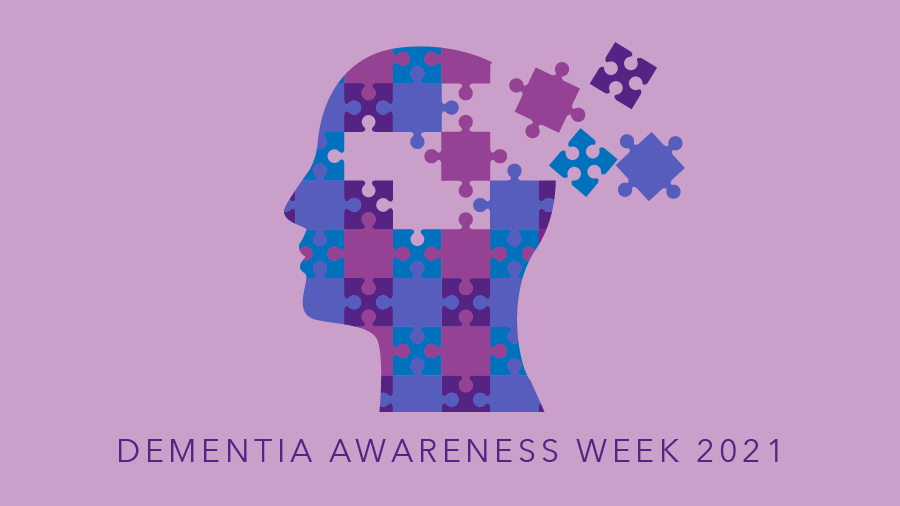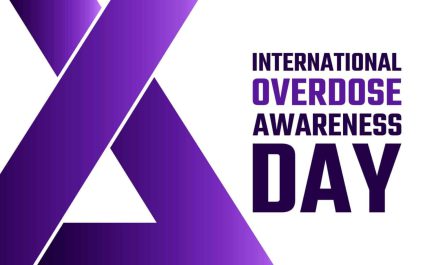Dementia Awareness Week
Each year, Dementia Awareness Week (DAW) is held with the aim of raising awareness of dementia and helping improve the lives of people with dementia, their families, and carers. Unlike those who live with other diseases, people who experience this syndrome are often unable to recognize their own symptoms. There is some controversy in healthcare circles over recent government initiatives to increase diagnosis rates, with debate over the ethics of “screening” and possible misdirection of resources. These are valid points. But a person with dementia, even at quite an advanced stage, may be unwilling or unable to self-present.
For this reason, carers need to be recognized as essential advocates, both pre-and post-diagnosis, with their views fully integrated into assessments and care packages. While it’s important for the autonomy of the person with dementia to be respected, the lack of insight which is so often a symptom means their needs may not be met, if only their own views are recorded and taken at face value. Many people with dementia can present well during brief interviews and believe they are 100% independent, while actually having a very compromised ability to take care of themselves.
Dementia is a syndrome that can be caused by a number of diseases that over time destroy nerve cells and damage the brain, typically leading to deterioration in cognitive function (i.e. the ability to process thought) beyond what might be expected from the usual consequences of biological aging. While consciousness is not affected, the impairment in cognitive function is commonly accompanied, and occasionally preceded, by changes in mood, emotional control, behavior, or motivation.
Dementia has physical, psychological, social, and economic impacts, not only for people living with dementia but also for their carers, families, and society at large. There is often a lack of awareness and understanding of dementia, resulting in stigmatization and barriers to diagnosis and care.
Common types of dementia
Alzheimer’s disease
The most common form of dementia, Alzheimer’s disease, contributes to 60% to 70% of all cases. Abnormally high levels of particular proteins, tau, and amyloid-beta, impair communication in an important brain region for learning and memory. Damage to this region starts before any signs of memory loss and worsens with disease progression. The accumulation of tau and amyloid-beta eventually leads to the formation of protein clumps called neurofibrillary tangles and senile plaques that kill the brain cells.
Vascular dementia
The second most common type of dementia is vascular, referring to vessels that supply blood to the brain. Damaged blood vessels can lead to insufficient blood supply, possibly leading to a stroke and brain cell loss. According to the Mayo Clinic, these patients typically show signs of impaired thinking and problem-solving, attention, and organization. Symptoms commonly arise following a series of strokes, but they can also develop gradually and without a stroke incident.
Lewy body dementia
Lewy bodies are another kind of protein clump that accumulates in the brain. They’re made up of a protein called alpha-synuclein. The accumulation of Lewy bodies leads to symptoms such as visual hallucinations, active dreaming, and Parkinson-like motor impairments. In fact, Lewy bodies are found in Alzheimer’s and Parkinson’s disease patients, just as the previously mentioned plaques and tangles are also found in all three diseases. The Alzheimer’s Association believes the similarity in symptoms and pathology between these diseases suggests a comparable underlying issue in protein processing.
Frontotemporal dementia
This type of dementia refers to several conditions in which the frontal and temporal lobes of the brain begin to shrink from cell loss. These lobes are commonly associated with behavior, personality, language, movement, and other functions. There are three types of frontotemporal dementia, including:
- Behavior variant frontotemporal dementia: Cell loss predominantly occurs in areas responsible for judgment and conduct. Sufferers experience changes in personality and behavior, such as inappropriate actions or lack of empathy.
- Primary progressive aphasia: This condition damages the brain areas responsible for speech and language, leading to a gradual loss of speaking, reading, writing, and understanding others.
- Related movement disorders: Some conditions that lead to loss of motor function, such as amyotrophic lateral sclerosis, are also associated with frontotemporal dementia. Behavioral and language symptoms may or may not occur in these cases.
Treatment and care
There is no cure for dementia, but a lot can be done to support both people living with the illness and those who care for them.
People with dementia can take steps to maintain their quality of life and promote their well-being by:
- being physically active
- taking part in activities and social interactions that stimulate the brain and maintain daily function.
In addition, some medications can help manage dementia symptoms:
- Cholinesterase inhibitors like donepezil are used to treat Alzheimer disease.
- NMDA receptor antagonists like memantine are used for severe Alzheimer’s disease and vascular dementia.
- Medicines to control blood pressure and cholesterol can prevent additional damage to the brain due to vascular dementia.
- Selective serotonin reuptake inhibitors (SSRIs) can help with severe symptoms of depression in people living with dementia if lifestyle and social changes don’t work, but these should not be the first option.
If people living with dementia are at risk of hurting themselves or others, medicines like haloperidol and risperidone can help, but these should never be used as the first treatment. It’s important that those who are concerned that they or someone close to them might be experiencing signs of dementia continue to come to us for guidance and support.




